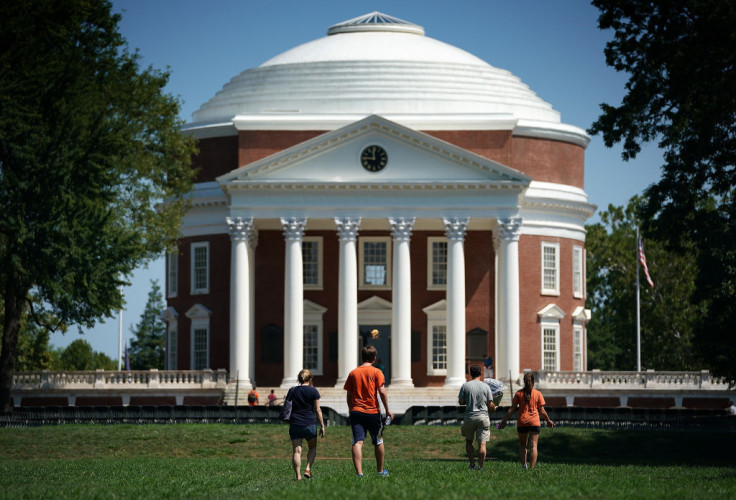UVA Fraternity Pledges Were Forced to Eat 'Heinous' Items, Verbally and Physically Abused, Report Claims
By
The University of Virginia has expelled a second campus fraternity after an investigation discovered disturbing hazing practices taking place within the organization.
The Theta Chi fraternity has been banned from the school for four years and cannot pursue reinstatement until 2028.
In a report released by the university last month, new members of Theta Chi vomited, became ill and were injured after being forced to eat food and non-food items, "including a mixture of heinous/unknown items and habanero peppers." The investigation also found that pledges were subjected to verbal harassment, confined to certain spaces in the frat house and forced to run errands for existing brothers.
Theta Chi is the second fraternity kicked off campus this year. Pi Kappa Alpha, which was founded at UVA in 1868, was terminated in April due to similar hazing accusations. Investigators discovered one pledge had their arms duct taped to a wooden cross and forced to eat a mixture of cottage cheese and hot sauce, and had hot sauce poured on their genitals.
In a video posted to the Pi Kappa Alpha national headquarters YouTube page on April 17, the organization's Executive Vice President Justin Buck called the UVA chapter an "embarrassment," according to The Daily Progress.
"For the first time since March 1, 1868 ... the Pi Kappa Alpha chapter at the University of Virginia had its charter suspended and revoked," Buck said. "This action was taken following the confirmed abhorrent and detestable hazing activities by individuals."
As of Friday, the video was no longer available on the organization's YouTube page.
The university also found that Theta Chi and Pi Kappa Alpha had intentionally misled school officials during their inquiries into the hazing allegations.
Two other fraternities - Sigma Alpha Mu and Pi Lambda Phi - remain under investigation and have been referred to the University Judiciary Committee.
© 2025 University Herald, All rights reserved. Do not reproduce without permission.








